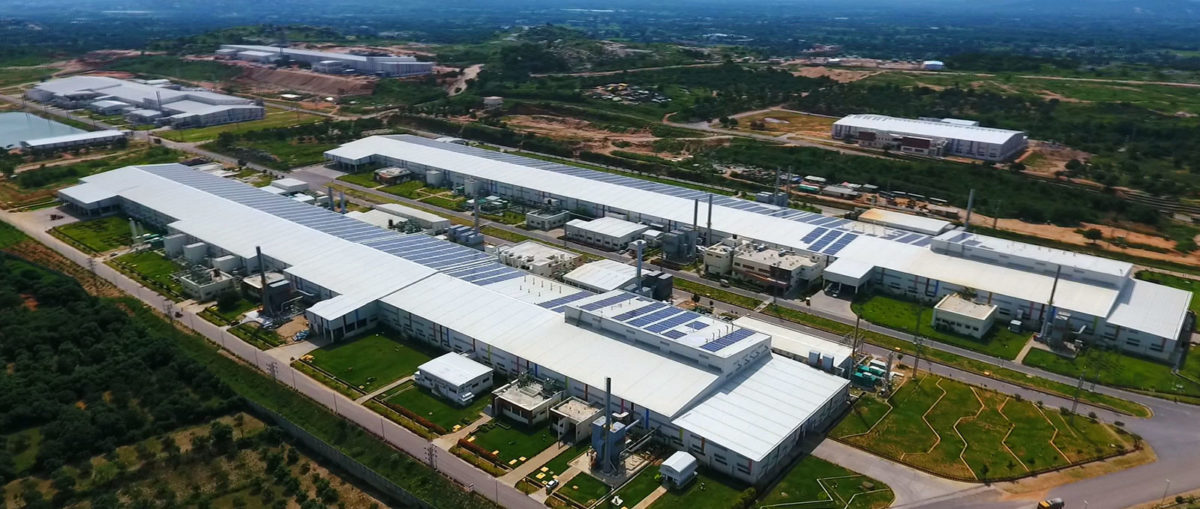Unlike Exide Industries, which together with Leclanché, will set up both a module and battery pack assembly line, Amara Raja Batteries will only undertake battery pack assembly by integrating the cell with the electronics. The company is working closely with the Indian Institute of Technology in Chennai, and expects the plant to become operational this year.
Elaborating on the development, S. Vijayanand, CEO of Amara Raja Batteries recently said in an interview in New Delhi, and reported on by both Bloomberg and LiveMint, “There’s incubation work going on because we are at a beginning stage both from the market-demand and product-development perspective. We are very focused on building solutions for the early stage of electrification of vehicles and work with the OEM programs at the same time.”
Amara Raja first shared its plans for a Li-ion battery unit at its shareholders’ meeting held last month. At the meeting, it noted that the rising penetration of electric vehicles (EVs), substantial investments in clean and renewable energy sources, and the recently launched ‘Make in India’ campaign, are expected to boost demand for Li-ion batteries in India.
Significantly, this July, the Indian Government reduced GST on Li-ion batteries from 28% to 18%. It also cut GST on the raw materials for battery manufacturing, to jump-start the domestic industry.
Competition catching up, slowly
Earlier this year, Exide Industries, India’s largest manufacturer of batteries, partnered with Switzerland based Leclanché to build Li-ion batteries and provide energy storage systems for India’s EV market and grid-based applications.
The production plant of Exide- Leclanché joint venture will be based in Gujarat. A module and battery pack assembly line is expected to be operational by Q2 2019, and a lithium-ion cell production plant, by mid 2020. In the intervening period, cells will be sourced from Leclanché’s plant in Willstätt, Germany.
EVs driving the demand
The government’s continued focus on promoting EVs on Indian roads augurs well for the battery storage industry. In fact, the market for EV power packs is set to grow to US$300 billion by 2030. Amara Raja expects the market for supplying batteries to e-rickshaws and small privately-owned three-wheeler taxis, to grow at a compounded rate of about 20% over the next five years.
Notably, the Indian government’s New Electric Mobility Mission Plan 2020 projects to have six to seven million EVs running on Indian roads by 2020. Besides, Smart City projects and Green Energy Corridor for power generation from renewable sources will add to the overall installed capacity, thus increasing demand for energy storage batteries.
The country’s EV policy should be geared toward two-wheelers, three-wheelers and public transportation, as it has a relatively low rate of car ownership, planning body, NITI Aayog said in June at a BNEF conference held on the future of energy and mobility.
To this end, the government is contemplating permitting youth in the age group of 16-18 years to drive e-scooters, which are gearless. This will lead to a big demand for e-scooters. T
It may also suggest that taxi aggregators should have an incremental share of EVs from 2020 onwards, which could be 1% of the fleet every year. Similarly, all public transport operators may also be mandated to provide 1% incremental fleet from 2020 onwards.
This content is protected by copyright and may not be reused. If you want to cooperate with us and would like to reuse some of our content, please contact: editors@pv-magazine.com.









Leading Lead-acid battery manufacturers are slowly catching them up with the flow, Manufacturing Li-ion battery in India. Manufacturing Li-ion battery locally in India helps greatly in reducing the cost & creating employment opportunities.
Thanks for your interest in the article, we look forward to your valuable feedback!